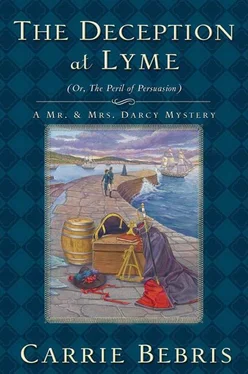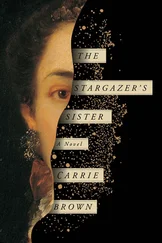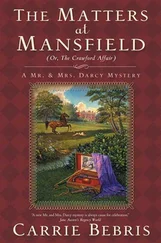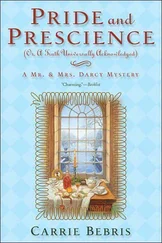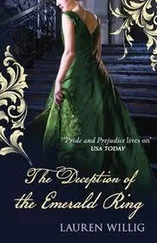“Good afternoon, Lieutenant.”
St. Clair greeted Darcy amiably while Georgiana composed herself.
“I am glad to have spotted you over here,” Darcy said to his sister. “I lost sight of you for a while.” Again, he glanced between them, wondering what he had interrupted. Georgiana’s flustered demeanor suggested that the lieutenant had been speaking in an inappropriate manner. “Is all well?”
“Oh! Yes—quite,” Georgiana said. “The rest of my party abandoned me, but Lieutenant St. Clair has been so good as to ensure I was not left entirely alone.”
“We were just discussing the subject of godparents,” St. Clair said.
“I see.” Darcy, in fact, did not see at all how such an innocuous topic could unsettle his sister, and again presumed the lieutenant’s manner must be at fault. “Well, thank you, Lieutenant. I can attend my sister now.”
The sea officer knew a dismissal when he heard one. Lieutenant St. Clair looked at Georgiana once more. “I enjoyed our conversation, Miss Darcy.”
When the officer was out of hearing, Darcy turned to her. “Was he troubling you?”
She opened her fan. “Not at all. He was a perfect gentleman.”
“You appear upset.”
She watched St. Clair blend into the crowd and shook her head. “Only warm. It is too close in this room.” Her fan moved rapidly. “Come, let us find more lemonade.”
“The manæuvres of selfishness and duplicity must ever be revolting, but I have heard nothing which really surprises me.”
—
Anne Elliot, Persuasion
Mrs. Smith’s history of her acquaintance with Mrs. Clay was interrupted by the arrival of Anne Wentworth and Alfred. The exhausted heir had fallen asleep in Mrs. Wentworth’s arms, and now dozed peacefully. Elizabeth helped Anne settle into the chair she had been compelled to abandon earlier.
As the new godmother smoothed the infant’s robe, Mrs. Smith observed her with approval. “Look how content he is at last, Anne. You are a natural with him.”
“Do you truly think so?”
“He could be in no better arms. You are doing very well by him.”
For whatever her opinion was worth, Elizabeth agreed. Of all Alfred’s blood relations and godparents, the Wentworths seemed the most genuinely interested in his welfare, and Anne the most attuned to his needs.
Mrs. Wentworth had but little time to enjoy the hard-won tranquility of a sleeping baby before Mary Musgrove appeared and sank into a chair beside her sister.
“Well, here you are, Anne—I had wondered where you were hiding yourself. I declare, I am exhausted—making conversation with all of these people, having to explain that I am only Alfred’s aunt, not one of his godmothers, since of course they assume I would have been asked. I would much prefer to sit here at leisure, like you, than perform the social duties incumbent upon us as Elliots.”
“I am happy to circulate among the guests if you would care to hold Alfred.”
“No, thank you. He might wake and start wailing again, and I have been suffering the headache all day. My headaches, you know, are always worse than anybody’s. It is all I can do just to sit here talking to you.”
“Perhaps you should try seabathing while you are in Lyme,” Mrs. Smith suggested. “I have found it beneficial.”
“I said that very thing to my husband, but he thinks seabathing ridiculous, with the machines and dippers and all. I went only the once, all the while we were here last November. I did not care for it, but I bathed in Charmouth, not Lyme. I quite imagine that the bathing in Lyme is superior to Charmouth. It must be pleasurable, for so many people go regularly. Even our father seabathes. Have you been, Mrs. Darcy?”
“I have.”
“See! Everybody here bathes—everybody except me! Why should I be deprived simply because my husband does not like it? This is always my lot! Whenever there is something desirable going on, I am sure to be excluded.”
“Our father goes only because Mr. Edwards urges him,” Anne said.
“I do not think I like this new physician of his. He has our father suddenly fearing that he is halfway to his grave. That is the only reason he married Mrs. Clay, you know.”
“Mary,” Anne said emphatically, casting a pointed look in Elizabeth’s direction. Elizabeth took a sip of lemonade and developed a sudden, intense interest in the pattern of the glass.
“Well, it was,” Mary continued. “The marriage was beneath him, but he was not going to leave this earth with Mr. Elliot as his heir.”
Wanting to relieve Mrs. Wentworth’s self-consciousness over Mary’s speaking so candidly about family matters in front of a slight acquaintance, Elizabeth rose and went to the window. It offered a lovely view of the beach and the sea, which was calm today, though the sun’s brightness through the glass was uncomfortable.
Anne shifted Alfred to her other shoulder. “Our father could not have known the child that Mrs. Clay carried was a boy.”
“Oh, he was certain—Mrs. Clay already had two sons, and kept bringing that fact to his attention the whole while she stayed with our father and sister in Bath. Do you not recall? I said once that I wished I had a daughter instead of only sons, because a daughter would surely be better behaved, and Mrs. Clay declared that she was delighted to be the mother of boys, and believed herself incapable of producing anything but sons. Delighted—ha! There she was, living a life of leisure and amusement in Bath, while her boys were back in Kellynch with Mr. Shepherd. So of course when Mrs. Clay came to our father in Lyme, he believed she carried a boy. And of course she convinced him that the child was his, despite her having run off with Mr. Elliot, because nobody was better at flattering our father than she was—how else could a freckled thing like her have seduced him, right under our noses last winter? And of course Mr. Shepherd was able to persuade him to marry her, because our father is used to following Mr. Shepherd’s advice.” She released a dramatic sigh. “And of course, while Mrs. Clay got everything she wanted, I still have all the care of my own two boisterous sons, with a mother-in-law who spoils them with too many sweets and then leaves me to contend with their misbehavior.”
“I would hardly say Mrs. Clay got everything she wanted,” Mrs. Wentworth said. “She is dead.”
Mary sighed again. “I suppose.” Having failed to gain her sister’s sympathy, she turned her attention to Elizabeth. “Mrs. Darcy, do you have sons?”
Elizabeth was happy to come away from the heat of the window and sit down again. “No, only a daughter, Lily-Anne.”
“A daughter! How fortunate you are. I would do so much better with daughters. They are quiet and mindful, and one can dress them in such pretty clothes. Boys cannot wear clothes five minutes before something is dirty or torn. But husbands always want boys. Mrs. Smith, do you have daughters or sons?”
“I have no children.”
“None at all? How very sad. I do not know what I would do without the cheerful sounds of my darlings at play. I suppose your husband was disappointed to have no son.”
Mrs. Smith responded with a polite smile, but Elizabeth saw in her eyes that this was a painful subject to her.
Apparently, Mrs. Wentworth, too, sensed Mrs. Smith’s discomfort, for she quickly said, “Mary, I wonder if you might do me a favor and suggest to our father that Alfred’s nurse be summoned. He begins to stir—I suspect he will wake soon, and when he does, he will be hungry.”
Mary, looking rather put-upon, roused herself enough to cast her gaze about for the Elliot patriarch. With a relieved half-smile, she settled back against her chair. “You may offer the suggestion yourself. He comes this way.”
Читать дальше
